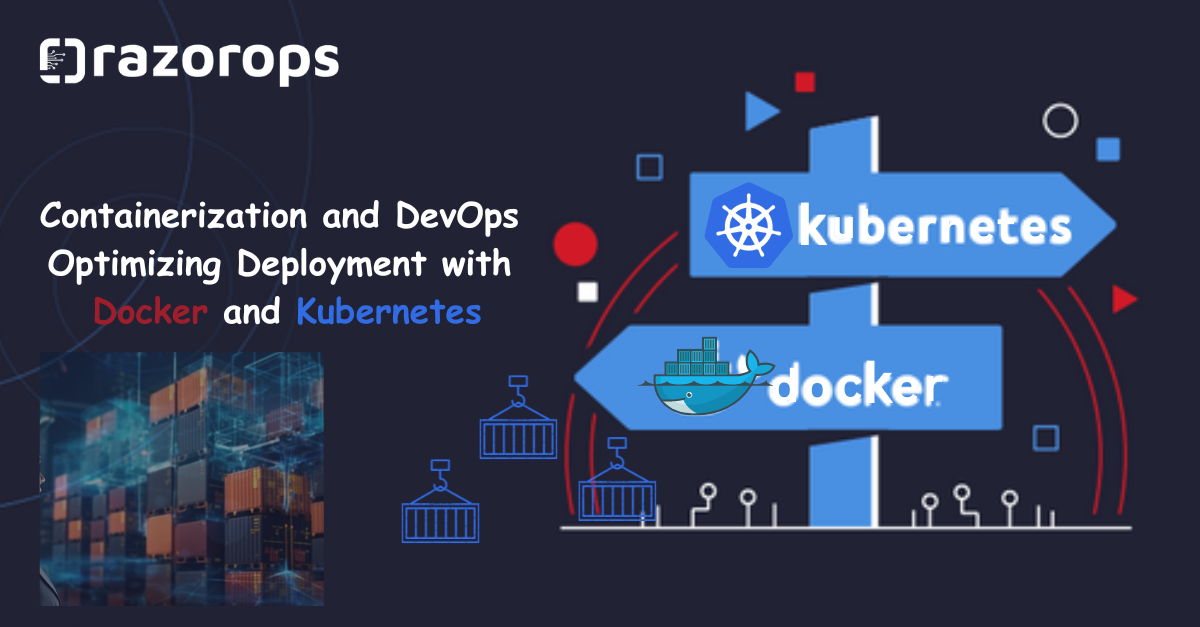
Containerization and DevOps Optimizing Deployment with Docker and Kubernetes
DevOps practices have revolutionized how teams build, test, deploy, and manage applications, enabling rapid delivery without compromising quality. Central to this paradigm shift are containerization technologies like Docker and orchestration platforms like Kubernetes. In this article, we'll explore how containerization and DevOps intersect, and how leveraging Docker and Kubernetes can optimize deployment processes.
Understanding Containerization and DevOps
Containerization involves encapsulating an application and its dependencies into a lightweight, portable package known as a container. Unlike traditional virtual machines, containers share the host OS kernel, making them highly efficient and portable across different environments. This consistency eliminates the "it works on my machine" problem and streamlines the deployment process.
DevOps, on the other hand, is a cultural and technical approach that emphasizes collaboration, automation, and integration between development and IT operations teams. It aims to shorten the software development lifecycle, increase deployment frequency, and deliver reliable, high-quality software.
The Role of Docker in DevOps
Docker is a leading containerization platform that simplifies the creation, deployment, and management of containers. It provides a consistent environment for applications to run, regardless of the underlying infrastructure. This consistency is crucial for DevOps teams striving for continuous integration and continuous delivery (CI/CD).
With Docker, developers can package their applications and dependencies into containers, ensuring that they run reliably across development, testing, and production environments. This standardization accelerates the development cycle and minimizes the risk of runtime issues.
Furthermore, Docker images are immutable, meaning once built, they remain unchanged throughout their lifecycle. This immutability promotes consistency and reproducibility, essential principles in DevOps workflows.
Orchestrating with Kubernetes
While Docker simplifies containerization, orchestrating and managing containers at scale require a robust solution. Kubernetes, an open-source container orchestration platform developed by Google, addresses this need. Kubernetes automates the deployment, scaling, and management of containerized applications, allowing DevOps teams to focus on delivering value rather than managing infrastructure.
Kubernetes abstracts away the underlying infrastructure, providing a unified API for deploying and managing containers across hybrid and multi-cloud environments. It automates tasks such as container scheduling, load balancing, and service discovery, optimizing resource utilization and enhancing application resilience.
领英推荐
Optimizing Deployment with Docker and Kubernetes
Integrating Docker and Kubernetes into DevOps workflows offers numerous benefits for optimizing deployment processes:
Empowering Deployment with Kubernetes:
While Docker revolutionized containerization, Kubernetes emerged as the de facto orchestrator for containerized workloads. Kubernetes automates container deployment, scaling, and management, offering a robust platform for container orchestration. It provides features like auto-scaling, service discovery, and rolling updates, making it ideal for deploying and managing complex, microservices-based applications at scale. By abstracting away infrastructure complexities, Kubernetes empowers DevOps teams to focus on application logic, enhancing agility and resilience.
Optimizing Deployment Pipelines:
Combining Docker and Kubernetes within a DevOps framework supercharges deployment pipelines, driving efficiency and reliability. CI/CD pipelines leverage Docker to build, test, and package applications into immutable containers, ensuring consistency across environments. Kubernetes then orchestrates the deployment of these containers, orchestrating intricate workflows seamlessly. Continuous monitoring and feedback loops further enhance the deployment process, enabling teams to iterate rapidly and deliver value to end-users with confidence.
Benefits of Containerization and DevOps:
The adoption of containerization and DevOps yields a myriad of benefits for organizations:
Containerization and DevOps, powered by Docker and Kubernetes, represent a paradigm shift in deployment strategies, enabling organizations to unlock new levels of efficiency, agility, and scalability. By embracing these technologies and fostering a culture of collaboration and automation, businesses can stay ahead in today's dynamic digital landscape, delivering value to customers faster and more reliably than ever before. As we continue to innovate and evolve, the synergy between containerization, Follow RazorOps Linkedin Page Razorops, Inc.